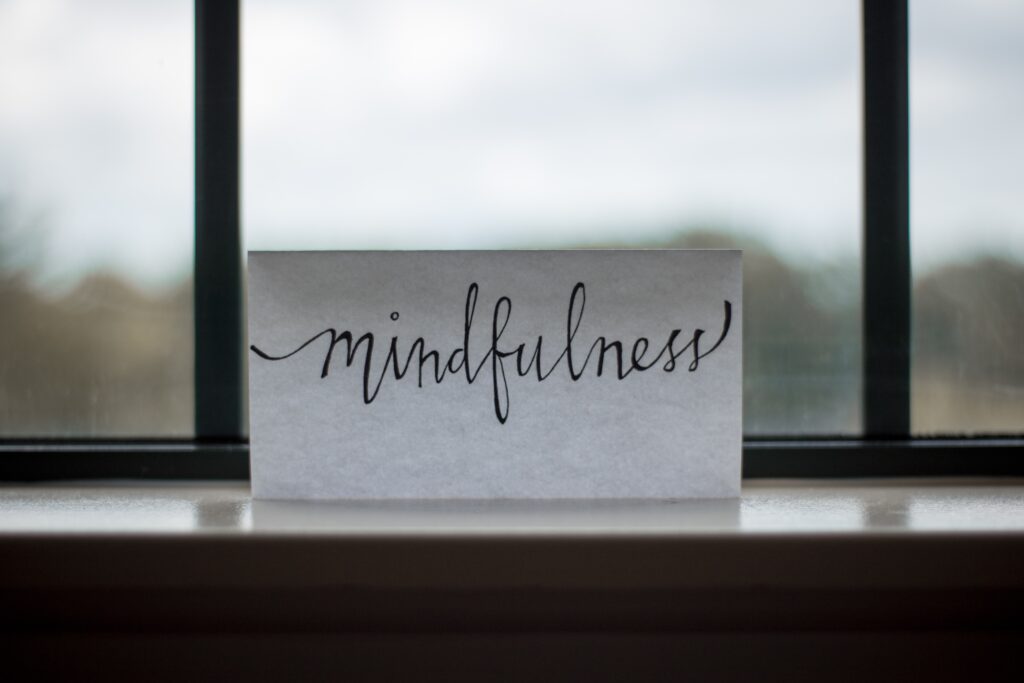In today’s fast-paced and chaotic world, improving our relationships and communication skills has become more important than ever. But how can we achieve this? One increasingly popular solution that is gaining traction is guided meditation. It is believed that by practicing guided meditation, we can enhance our ability to connect with others on a deeper level and improve our communication skills. This article explores the potential benefits of guided meditation in helping us build healthier relationships and foster effective communication.
Benefits of Guided Meditation
Reduced Stress and Anxiety
Guided meditation can be a powerful tool in reducing stress and anxiety. In today’s fast-paced world, it’s easy to become overwhelmed and stressed out. Guided meditation offers a way to slow down and find peace in the midst of chaos. By focusing on the present moment and letting go of worries and concerns, guided meditation can help you feel more relaxed and at ease. This can have a direct impact on your relationships, as stress and anxiety can often lead to conflicts and strain on interpersonal connections. By incorporating guided meditation into your routine, you can experience a profound reduction in stress and cultivate a sense of calm and tranquility in your everyday life.
Increased Self-Awareness
One of the major benefits of guided meditation is the increased self-awareness it fosters. Through guided meditation, you are encouraged to pay attention to your thoughts, emotions, and bodily sensations without judgment. This practice of self-reflection allows you to become more conscious of your own personal patterns and behaviors. This self-awareness is crucial in relationships, as it allows you to recognize and understand your own triggers, reactions, and communication style. By having a deeper understanding of yourself, you can better navigate your interactions with others and make conscious choices that lead to healthier and more fulfilling relationships.
Improved Emotional Regulation
Emotional regulation is essential in maintaining healthy relationships. Guided meditation provides a space to cultivate emotional regulation skills by developing mindfulness. Through guided meditation, you learn to observe your emotions without judgment or attachment. This allows you to detach from impulsive reactions and choose more appropriate and constructive responses in challenging situations. By practicing emotional regulation through guided meditation, you can enhance your ability to handle conflicts, communicate effectively, and create an atmosphere of emotional safety and understanding in your relationships.
Understanding Relationships
Importance of Communication
Communication is at the core of any successful relationship. It is the foundation that allows individuals to connect, understand each other, and build trust. Effective communication promotes emotional intimacy, problem-solving, and conflict resolution. Without proper communication, misunderstandings can arise, leading to frustration and resentment. By recognizing the importance of communication in relationships, you can prioritize and invest in improving your own communication skills.
Types of Relationships
Relationships come in various forms, from romantic partnerships to friendships and familial bonds. Each type of relationship requires its own unique set of skills and dynamics. Understanding the different types of relationships and their specific characteristics can help you navigate the complexities that arise within each. By recognizing the nuances of different relationships, you can tailor your communication and actions accordingly, fostering stronger and more meaningful connections.
Challenges in Relationships
Relationships are not always smooth sailing. They require effort, patience, and understanding. Common challenges in relationships include conflicts, misunderstandings, and differing expectations. By acknowledging and addressing these challenges, you can take proactive steps to overcome them. Guided meditation can become a valuable tool in managing relationship challenges by providing a space for self-reflection and growth. By incorporating guided meditation into your relationship journey, you can navigate these challenges with grace and empathy.

This image is property of images.unsplash.com.
Role of Communication Skills
Verbal Communication
Verbal communication involves the use of words, tone, and vocal cues to convey messages and express thoughts and emotions. It is an essential aspect of effective communication. Developing strong verbal communication skills allows you to express yourself clearly, assertively, and respectfully. By practicing guided meditation, you can enhance your verbal communication skills by cultivating mindfulness and self-awareness. This allows you to choose your words mindfully, listen attentively, and respond in a thoughtful and constructive manner.
Nonverbal Communication
Nonverbal communication encompasses body language, facial expressions, gestures, and tone of voice. It often speaks louder than words and can greatly impact the meaning and interpretation of a message. Being aware of your own nonverbal cues and understanding the nonverbal cues of others can enhance your communication skills. Guided meditation can help you cultivate a heightened sense of awareness, allowing you to be more attuned to nonverbal cues in your relationships. This can foster better understanding, empathy, and connection with others.
Active Listening
Active listening is a fundamental skill in effective communication. It involves fully focusing on and understanding the speaker’s message, rather than simply waiting for your turn to speak. By practicing active listening, you show respect and genuine interest in the other person’s perspective. Guided meditation can help improve your active listening skills by fostering mindfulness and presence. By being fully present and attentive in your interactions, you can create a safe and supportive environment for open and honest communication.
How Guided Meditation Can Help
Developing Mindfulness
Mindfulness is a core aspect of guided meditation and can have a profound impact on your relationships. Mindfulness involves being fully present in the moment, without judgment or attachment to thoughts and emotions. By developing mindfulness through guided meditation, you can bring this quality of presence into your relationships. This allows you to be fully engaged and attentive in your interactions, promoting deeper connections, understanding, and empathy.
Enhancing Empathy
Empathy is the ability to understand and share the feelings of another person. It is crucial in building meaningful relationships and fostering emotional intimacy. Guided meditation can enhance your capacity for empathy by cultivating compassion and understanding. Through guided meditation, you learn to observe and acknowledge your own emotions, which in turn allows you to better understand and empathize with the emotions of others. By incorporating guided meditation into your life, you can strengthen your empathy and create a more supportive and compassionate environment in your relationships.
Promoting Emotional Intelligence
Emotional intelligence refers to the ability to recognize and manage one’s own emotions and the emotions of others. It plays a significant role in effective communication and relationship building. Guided meditation can promote emotional intelligence by fostering self-awareness, emotional regulation, and empathy. By practicing guided meditation, you become more attuned to your own emotions and those of others, allowing you to navigate relationships with greater understanding and empathy.

This image is property of images.unsplash.com.
Strengthening Relationships Through Guided Meditation
Building Stronger Connection
Guided meditation can help build stronger connections in relationships by fostering presence, empathy, and understanding. By incorporating guided meditation into your daily routine, you can cultivate a deeper sense of connection with others. By being fully present and attuned to the needs and emotions of the people in your life, you can strengthen your bonds and create a more fulfilling and supportive network of relationships.
Resolving Conflicts
Conflicts are a natural part of any relationship, but how we handle them can significantly impact the outcome. Guided meditation equips you with the tools to bring a calm and centered approach to conflict resolution. By practicing mindfulness, emotional regulation, and empathy, you can approach conflicts with a greater sense of understanding and compassion. Guided meditation also allows you to step back and observe your own thoughts and emotions, helping you communicate more effectively and find mutually beneficial resolutions.
Developing Mutual Respect
Respect is the foundation of healthy and harmonious relationships. Guided meditation can help develop a deep sense of respect for oneself and others. Through guided meditation, you learn to cultivate self-compassion and non-judgment towards yourself. This self-respect then translates into a greater appreciation and respect for the unique strengths and perspectives of others. By incorporating guided meditation into your daily life, you can cultivate an atmosphere of mutual respect, understanding, and appreciation within your relationships.
Improving Communication Skills with Guided Meditation
Clear and Effective Expression
Guided meditation can enhance your ability to express yourself clearly and effectively. By developing mindfulness and self-awareness, you can observe and articulate your thoughts and emotions with clarity and authenticity. This allows you to convey your needs, desires, and concerns in a way that is respectful and easily understood by others. By incorporating guided meditation into your routine, you can improve your communication skills and foster healthier and more productive interactions.
Active and Empathetic Listening
Guided meditation can also improve your listening skills, making you a more attentive and empathetic listener. By practicing mindfulness and presence, you can truly focus on the speaker’s message and understand their perspective. This active listening promotes open and honest communication, fostering trust and deeper connections in relationships. By incorporating guided meditation into your daily life, you can become a more effective listener and create a safe and supportive space for conversations.
Nonverbal Communication Skills
Guided meditation can enhance your nonverbal communication skills by cultivating self-awareness and attunement to others. By practicing mindfulness, you become more conscious of your own body language, facial expressions, and tone of voice. This awareness allows you to align your nonverbal cues with your verbal messages, creating a more congruent and authentic mode of communication. By incorporating guided meditation into your routine, you can develop a stronger ability to use nonverbal cues effectively, enhancing your overall communication skills.

This image is property of images.unsplash.com.
Implementing Guided Meditation for Relationship Improvement
Finding Suitable Guided Meditation Practices
When it comes to guided meditation for relationship improvement, it’s important to find practices that resonate with you and meet your specific needs. There are a variety of guided meditation resources available, ranging from apps and online platforms to books and audio recordings. Explore different techniques such as loving-kindness meditation, compassion meditation, and mindfulness meditation to discover which ones are most helpful for your relationship journey. Experiment with different practices and find what works best for you and your unique circumstances.
Establishing a Routine
Consistency is key when it comes to guided meditation and relationship improvement. Set aside dedicated time each day to engage in guided meditation practices. Whether it’s in the morning, during a lunch break, or in the evening, find a time that works best for you and commit to making it a regular part of your routine. By establishing a consistent meditation practice, you allow yourself the opportunity to cultivate the skills and qualities that contribute to stronger relationships.
Incorporating Meditation into Daily Interactions
Guided meditation doesn’t have to be limited to your designated meditation time. You can also incorporate the principles and mindset of meditation into your daily interactions. Practice mindfulness and presence when engaging with others, whether it’s during a conversation, a shared activity, or even a conflict. By bringing the qualities of mindfulness, empathy, and understanding into your everyday interactions, you can enhance the quality of your relationships and create more meaningful connections.
Common Misconceptions and Resistance
Misconception 1: Meditation is Time-consuming
One common misconception about guided meditation is that it requires a significant amount of time. However, even just a few minutes of guided meditation each day can yield significant benefits. It’s not necessary to devote hours to meditation to experience positive changes in your relationships. By incorporating short, regular sessions of guided meditation into your routine, you can still reap the rewards and improve your communication skills and relationships.
Misconception 2: Meditation is Religious or Spiritual
Another misconception about guided meditation is that it is religious or spiritual in nature. While meditation does have roots in various spiritual traditions, it is also widely practiced in secular contexts. Guided meditation can be approached from a non-religious and non-spiritual perspective, focusing solely on the mind-body benefits and practical applications. It can be a tool for personal growth and relationship improvement, regardless of your religious or spiritual beliefs.
Resistance to Change
Resistance to change is a common barrier that can prevent individuals from incorporating guided meditation into their lives. It’s natural to feel resistant to new practices or routines, especially if they require a shift in mindset or behavior. However, by being open-minded and willing to explore new approaches, you can overcome resistance and embrace the potential benefits of guided meditation. Start small and gradually incorporate guided meditation into your routine, and you may find that the positive changes in your relationships and communication skills outweigh any initial resistance.
Research and Studies
Scientific Evidence on Meditation
Numerous scientific studies have explored the benefits of meditation on various aspects of mental and emotional well-being. Research has found that meditation can lead to reduced stress and anxiety, increased emotional regulation, enhanced attention and focus, improved self-awareness, and increased overall well-being. These findings provide strong scientific evidence supporting the potential impact of guided meditation on relationship improvement and communication skills.
Studies on Relationship and Communication Improvement
Several studies have specifically examined the impact of meditation on relationship and communication improvement. Research has shown that meditation can enhance relationship satisfaction, increase empathy and understanding, improve conflict resolution skills, and promote overall relationship well-being. These studies indicate that incorporating guided meditation into your life can positively influence your relationships and support effective communication.
Conclusion
Guided meditation has the potential to greatly improve relationships and communication skills. By reducing stress and anxiety, increasing self-awareness, and promoting emotional regulation, guided meditation creates a strong foundation for healthy and fulfilling relationships. By developing mindfulness, enhancing empathy, and fostering emotional intelligence, guided meditation enhances your ability to connect with others on a deeper level. Through building stronger connections, resolving conflicts, and developing mutual respect, guided meditation can cultivate a harmonious and supportive environment within your relationships. By improving your communication skills through clear and effective expression, active and empathetic listening, and nonverbal communication, guided meditation empowers you to engage in more meaningful and authentic conversations. By implementing guided meditation as a part of your daily routine, finding suitable practices, and incorporating mindfulness into your daily interactions, you can experience the transformative power of guided meditation in your relationships. Despite common misconceptions and resistance to change, scientific research strongly supports the efficacy of guided meditation in improving relationships and communication skills. So why wait? Begin your journey towards stronger relationships and enhanced communication by incorporating guided meditation into your life today.
Hi, I’m the Editor of Daily Guided Meditation. Meditation is not just a practice for me, but a way of life. I believe in the power of mindfulness to bring peace and balance into our busy lives. That’s why I created this website, where you can find daily guided meditations to help you on your journey of self-discovery and inner peace. Join our community and experience the transformative benefits of mindfulness through soothing meditations, relaxation techniques, and valuable resources. Prioritize self-care and start your day with intention by exploring our website today. Together, let’s find serenity amidst the chaos.


